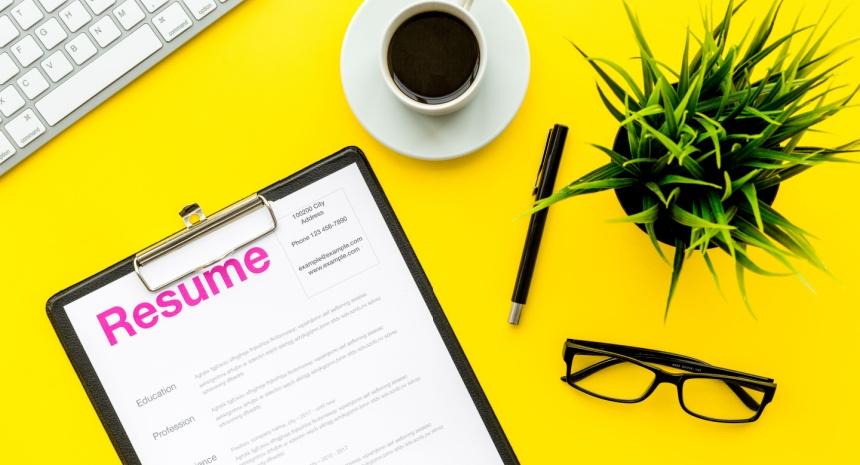You spend your days maintaining the hushed atmosphere of the library and acting as a guardian of knowledge. But when it’s time to find your next librarian role, you can’t just sit back and stay quiet. You’ll need to learn how to show employers you have what it takes.
Whether you’re a career librarian crafting your first resume, the first step is educating employers about what you’ll bring to the table. Well, we have some good news!
With the help of some easy-to-follow instructions on how to write a resume for your career as a librarian and some excellent resume examples for reference, the task can be much simpler than you think. Here, you’ll learn exactly what you need to know to write an impressive librarian resume in a matter of minutes.
Keep reading to find:
- Examples of librarian resumes for applicants with different experience levels.
- What makes a librarian resume example great.
- Tips for writing your resume, including how to find the right keywords.
- What to include in every section of your librarian resume.
- How to choose the right resume template and format for the role.
Ready to write a librarian resume now? Use our professional Resume Maker for step-by-step help writing every section, including using our AI-generated resume content for a librarian role.
Librarian resume examples
What makes this a great entry-level librarian resume sample?
-
Descriptive career objective
This applicant doesn’t have direct experience as a librarian, but his work experience as a library assistant has helped him gain the experience he needs to take the next step in his career. He lays this out in his career summary, also known as a resume objective.
-
Use of multiple skills sections
This applicant wisely uses the bulk of his resume’s real estate to highlight his relevant library skills. By employing two different types of skills sections, he makes it easy for hiring managers to see that he has the training required to perform the role. The professional skills section even organizes them into categories, which makes them easy to scan.
-
Simple resume template
Libraries are fairly conservative environments, which makes this simple, streamlined resume template perfect for this type of role. If you’ are applying for a role at a children’s libraries or at a school, a more colorful template might be appropriate.
What makes this a great experienced librarian resume sample?
-
Strong professional summary
This resume kicks off with a professional summary that describes the applicant’s top skills. She provides employers with a great introduction to the hard and soft skills she will bering to the table.
-
Detailed work experience section
This applicant uses multiple detailed bullet points to highlight her past professional experience. By listing her experience in reverse- chronological order, she also showcases her career progression over the years.
-
Includes an impactful special section
This applicant makes powerful use of a special header for listing her community outreachd. This type of special section gives potential employers a look into who you are outside of work, which helps them see you as a well-balanced person.
Browse other popular samples
Choosing a format for your librarian resume
To land the librarian job you want, you need to get the right information in front of a recruiter. How do you accomplish that? By choosing the resume format that puts your most impressive credentials front and center. The resume format you choose should be based on your level of experience as a librarian.
Here’s how to decide which one is right for you:
- The chronological resume format works best for experienced applicants who have five or more years of relevant experience as a librarian.
- The combination resume format is great for midlevel applicants who have a few years of work experience as a librarian.
- The functional resume format is perfect for applicants with little to no direct librarian work experience.
Visit our guide to learn more about how to format a resume for more information on how to best showcase your skills, training and experience.
Now that you’ve chosen the perfect format, it’s time to pick your resume template.
Styling your resume template for the job you want
While every resume will have the same basic sections — a professional summary or resume objective, skills, work history and education — you can customize the look and feel of your resume by selecting the right resume template.
While there are many different resume designs, a versatile simple resume template may be the way to go. Its minimalist design makes your skills and experience the star of the show over fussy design elements. Or try a modern resume for a more stylish design.
If you’re applying for jobs in more casual environments, like as a children’s librarian, a creative resume template might be in order. These fun, colorful designs show off your personality.
Now let’s dive into the writing process.
How to write a librarian resume in 5 simple steps
While there are some basic rules for writing a great resume, top candidates for competitive librarian jobs know that the key to getting noticed is to write a resume that is specific to the industry and the role they seek.
Let’s go through how to accomplish just that, step by step.
Step 1
Study the librarian job description
A well-crafted librarian resume is tailored to encompass keywords that highlight your proficiency in the role. This is of paramount importance.
Many employers use Applicant Tracking Systems (ATS) to sift through resumes, using predefined keywords to filter out unqualified candidates. If your resume lacks the requisite keywords, it may be screened out before a human being even has a chance to see it. To optimize your resume for an ATS, it’s important that it matches the librarian job description.
But how do you determine which keywords to include? Don’t worry — it’s a very straightforward process.
While each librarian role will have different requirements, a well-crafted job advertisement should provide comprehensive guidance on the essential keywords to incorporate into your librarian resume. The key to success lies in examining the job description and compiling a list of crucial keywords.
For instance, if the job description for the librarian role you’re pursuing emphasizes skills such as communication and digital literacy, as well as experience with library management software, ensure that you integrate these exact terms into your resume. Identify opportunities in your professional summary, skills section and work experience to incorporate these keywords. Then, meticulously review your resume to ensure that your wording aligns with that of the job description, enabling the ATS to recognize it.
While this may seem like a meticulous process, once you become accustomed to it, it should only take a few minutes and significantly enhance the efficacy of your librarian resume compared to a non customized version.
Step 2
Write a professional summary or resume objective
Depending on your level of experience, your librarian resume should include either a professional summary or a resume objective to start. Think of this section as your resume profile, where you provide potential employers with a summary of your most relevant skills and experience and some professional highlights.
Candidates with less experience should choose a resume objective, which states your transferable skills and your career goals. Applicants with more direct experience in a librarian role should use a professional summary, which outlines your skills and experience and highlights some of your most notable professional accomplishments.
Let’s look at how each of these would appear on a librarian resume.
Professional summary for a librarian resume:
Dedicated and seasoned librarian with over a decade of experience in curating and managing diverse collections, providing exceptional reference services and implementing innovative outreach programs. Adept at leveraging digital resources to enhance accessibility and spearheading the digitization initiative, resulting in a 30% increase in online resource utilization. Known for fostering a welcoming and inclusive library environment and committed to promoting lifelong learning and information literacy within the community. Proven track record of success in collection development and user engagement and a wealth of expertise to drive meaningful impact in any library setting.
Librarian assistant resume objective example:
Diligent and detail-oriented library assistant with a passion for supporting the efficient operation of library services. Eager to contribute my organizational skills and enthusiasm for fostering a love of reading and learning among patrons. Adept at cataloging, shelving and assisting with administrative tasks. Committed to maintaining an inviting and organized library space for the benefit of the community.
Step 3
Highlight your most relevant librarian skills
Regardless of your experience level, hiring managers will be looking closely at the librarian resume skills you list. Skills for a librarian resume should be added to your resume skills section and peppered into your professional summary (or resume objective) and your work experience section.
It’s critical that you provide employers with a solid mix of hard and soft skills. Hard skills are the measurable skills needed to perform a job, like using the Dewey Decimal system. These skills are easily taught in a classroom. Soft skills, like teamwork and collaboration, are behaviors and personality traits, which make them difficult to measure.
Below, we provide a side-by-side list of hard and soft skills to help you see the difference between the two.
Key skills for a librarian resume
- Information retrieval
- Library management software
- Reference and research skills
- Interlibrary loan services
- Collection development
- Customer service
- Organizational skills
- Communication
- Cultural sensitivity
- Attention to detail
Here’s an example of a strong resume skills section for a librarian:
- Proficiency in organizing and classifying materials using systems like Dewey Decimal and Library of Congress Classification.
- Efficiently manage tasks, materials and resources.
- Ability to prioritize tasks and manage time efficiently to meet deadlines.
- Ability to assist patrons in finding information and conducting research using library resources.
- Selecting, acquiring and managing library materials to meet the needs of the community.
When writing your skills section, adding computer skills and other technical abilities are great. However, soft skills count, too, especially in a library setting. Try to find a mix of hard and soft skills to show that you are a well balanced applicant.
Step 4
Write a strong librarian work experience section
While the required background and experience will be different for each role, the key to getting noticed is writing a work experience section that demonstrates what you will bring to the table.
Think about your library work experience in terms of projects that challenged you, challenges you’ve overcome and professional successes you’ve enjoyed over the course of your career. Describing your work experience in these terms helps show off the impact of your work rather than just your job duties.
Sample librarian work history entry:
Librarian, Morriston Central Library
Morristown, NJ
February 2015 – Present
- Spearheaded the digitization initiative, resulting in a 30% increase in online resource utilization and a 25% reduction in physical checkouts over a two-year period.
- Implemented a community outreach program, leading to a 40% rise in library memberships and a 20% increase in attendance at educational workshops and events.
- Managed and curated a diverse collection of over 50,000 items, ensuring accurate cataloging and accessibility, resulting in a 15% decrease in misshelved materials.
- Led a team of three library assistants, conducting regular training sessions and workshops resulting in a 25% improvement in cataloging accuracy.
- Collaborated with local schools to establish a dedicated library space for students, resulting in an increase in student visits during the academic year.
Make your librarian credentials pop by using action words, data and metrics to capture the attention of a hiring manager. By using interesting words, like “spearheaded” and “implemented,” you’ll keep a recruiter’s attention. Adding data shows employers the impact of the work you have done and allows them to see what you’ll bring to the table if you’re hired.
Step 5
Showcase your education and training
To be hired as a librarian, you’ll need to show employers that you have the required education and training. While not always required, many top candidates for this role have a list of degrees, starting with a Master’s Degree in Library Science, either an MLS or MLIS, and relevant certifications or special training.
In some cases, especially for academic or research libraries, a second master’s degree or a Ph.D. in a relevant subject area can be beneficial. Regardless of your highest level or education, there is no need to list your year of graduation unless you are a very recent grad. If you’re a recent graduate, you can add the date and consider including relevant coursework that can help you in your new role.
How to list your education:
EDUCATION
Master of Library Science (MLIS)
UCLA, Los Angeles, CA
June 2024
RELEVANT COURSEWORK:
- Information Organization and Retrieval
- Collection Development and Management
- Archives and Special Collections
- Reference and Information Services
CERTIFICATIONS:
- Certification in Digital Archiving, New York Institute for Archival Studies
Optional sections for your librarian resume
Certifications
Obtaining certifications highlights your commitment to continuous learning and improvement in your field. This is critical for librarians who must stay abreast of the most recent book releases, research materials and more.
Here are some certifications to consider for your librarian resume:
- Certified Public Librarian (CPL)
- Certified Academic Librarian (CAL)
- Medical Librarian Certification (MLC)
- Law Librarian Certification (LLC)
- Digital Archivist Specialist (DAS)
Hobbies and interests
Featuring personal projects or hobbies, especially those tied to literature, reading and the written word offers a more comprehensive view of your passion for books and the preservation of knowledge.
How to feature hobbies and interests on your resume:
- Launched a local book drive for senior citizens.
- Organized and hosted a monthly creative writing workshop series, led by local and national writers.
Languages
Having the ability to speak more than one language is a fantastic asset in today’s job market. It opens up new avenues for communication and allows you to connect with a broader group of people. Plus, if there are two similarly qualified candidates for a librarian role, and one of them shows a proficiency in multiple languages on their resume, that candidate will likely become even more appealing to the employer.
How to showcase languages on your resume:
- Fluent in English, Mandarin and Cantonese
- Conversational Shanghainese
resumes made with Resume Now!
Add a cover letter
You may spend your days shushing people, but when you’re looking for a new job you’ll need to shout your credentials from the rooftops. A librarian cover letter can help by giving you extra space to convince the employer that you’re the right person for the job.
Learning how to write a cover letter for a librarian job starts with studying our cover letter examples to learn how to express your unique candidacy in a compelling way and how to format your cover letter for success.
Or, if you want a job-specific cover letter in a matter of minutes, use our professional Cover Letter Generator, which offers professionally written text suggestions for every section. Use the wording as-is or customize it to suit your needs.
Key takeaways for your librarian resume
-
Personalize your resume for each opportunity
Tailor your librarian resume to align with the specific requirements of each job ad to which you apply, making note of the critical skills and experience outlined in the job description.
-
Select the appropriate resume format
Decide what you’d like to emphasize the most on your librarian resume — such as strong skills, an impressive work history or both — and then select the format that will help you put your best foot forward.
-
Choose an appropriate resume template
If you’re applying for a job at a conservative company, you’ll want to choose a conservative resume design. For less traditional work environments, your resume template can be more colorful and creative.
-
Follow our steps for a standout resume
Take care to write all five sections of your resume in a way that is specific to the job you seek. Your professional summary, skills, work experience and education section should all contain information that is targeted to the job ad.
-
Include both hard and soft skills
Being a librarian requires a mix of technical and personal skills to do the job well. Study our list of hard and soft skills to be sure that you include a balance of both types in your resume.
-
Make your work experience section shine
Accomplish this by using action verbs, data and metrics to show the impact of your work.
-
Go the extra mile with a cover letter
Including a well-written librarian cover letter can increase your chances of landing a job interview, so take the chance to include one with your application.
FAQs from job seekers
Last Updated: January 01, 2025
Was this information about Top Librarian Resume Examples & Writing Tips helpful? Let us know!
Heather is the Content Strategy Manager for Resume Now and a Certified Professional Resume Writer (CPRW) with more than ten years of experience writing about job search and career topics. She is based in San Francisco.
More resources

How to Use AI to Apply for Jobs (Guide + Tips)
Take advantage of cutting-edge AI technology to land your next...

How to Address a Cover Letter Without a Name
Addressing your cover letter to the employer by name is a grea...

15 Latest Resume Trends for 2025 + Examples
In our dynamic global economy the job market and the expectat...

Engineering Resume: Examples, Templates & Tips for 2025
Build an engineering resume that s bound to impress recruiters...

Nursing Resume: Examples & Templates for 2025
Planning to pursue a nursing career? Let our samples template...

Biotechnologist: Examples, Templates & Tips for 2025
Dreaming of becoming a biotechnologist? Check out our easy-to-...


